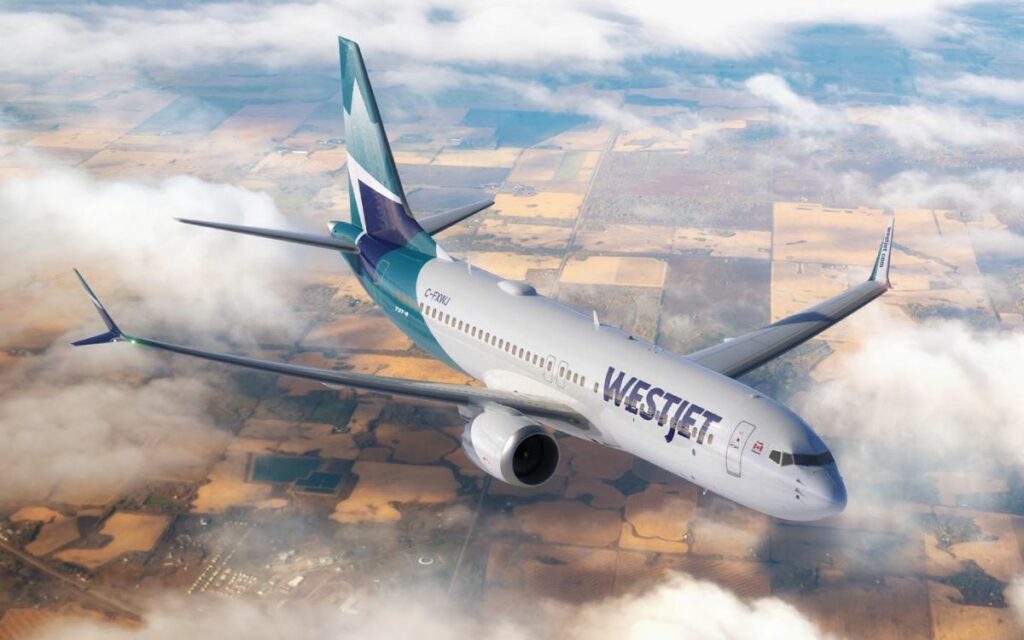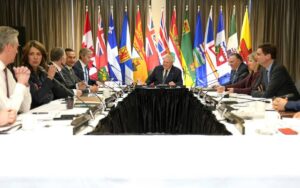
If 100,000 people could be inconvenienced in three days on one airline, what chaos could this legislation banning temporary workers cause?
Flight disruptions caused by a strike of WestJet mechanics left lost travellers with bad memories, questions about compensation, and concerns whether such disruptions could become more common.
My wife and I were planning nine nice days in Victoria, flying there June 20 and returning home June 29. A gong show of events turned our one week into two, thanks to clash and confusion between WestJet, its mechanics, and Ottawa.
On June 27, WestJet pre-emptively canceled 25 flights in anticipation of a strike by aircraft maintenance engineers and other tech ops employees. The Trudeau government stepped in the same day as Federal Labour Minister Seamus O’Regan ordered binding arbitration.
“I have directed the CIRB [Canadian Industrial Relations Board] to impose final binding arbitration to resolve outstanding terms of the collective agreement,” O’Regan said in a press release.
WestJet happily announced the workers had “confirmed they will abide by the direction. Given this, a strike or lockout will not occur, and the airline will no longer proceed in cancelling flights.”
The resolution soon fell apart, however. The CIRB ordered the arbitration, but clarified that “ministerial referral does not have the effect of suspending the right to strike or lockout.”
The mechanics walked this red carpet for job action and went on strike June 28.
O’Reagan expressed his displeasure to X.
“I am reviewing the Board’s decision, which is clearly inconsistent with my direction to the board,” he said.
WestJet President Diederik Pen summed it up best: “Lack of clarity from the government and the decisions taken by the CIRB allowed for a strike to occur amidst binding arbitration.”
By Canada Day 1,078 flights had been canceled, inconveniencing 100,000 passengers. By then, O’Reagan had figured out how things worked.
“The board is independent of the government and I respect its authority,” he said.
By July 1, O’Reagan could tweet that at least the union and the company had done their job.
“WestJet and AMFA have reached a tentative agreement, Canadians’ patience having been worn too thin,” he said.
Passengers like me were stuck whether we were patient or not. In our case, messages we received from the companies were as mixed up as those given by the government.
Alas, we had booked our WestJet tickets through a third party called CheapOair. Readers are free to note with a laugh that a company with such a name may not offer gold-standard services. Nevertheless, when our June 29 flight was canceled, a July 2 flight was offered to us online by CheapO, which we accepted.
As our departure drew near, repeated efforts to get a boarding pass failed, leaving us at the airport to get matters straight in person. This availed nothing. The WestJet clerk called her airline’s 1-800 number only to be put on hold indefinitely like everyone else. We called CheapO while we waited and after 11 minutes, “customer service specialist” Horatio finally took our call.
A series of delays for the flight departure kept buying us more time, but also meant we would miss our Calgary connecting flight at 8 pm. It took repeated asks before the WestJet clerk in front of us finally understood our request for her to check into later flights out of Calgary that night. There were indeed–and one had room.
Somehow, despite 90 minutes of efforts, we were unable to board the July 2 flight out of Victoria. Instead, we were given boarding passes for a flight that would leave at 6 am on July 3. Strangely, at the same time, CheapO had sent my wife a message saying we would be on a July 5 flight. We decided to trust the boarding passes given to us by WestJet directly instead.
As it turns out, CheapO was right and WestJet was either wrong or disingenuous. When we arrived at 6 am July 3, we were told our flight had been canceled for an “unscheduled maintenance.” It seemed we were flying out on July 5 after all, a schedule that was thankfully, finally, fulfilled.
We’ve been told to submit receipts to WestJet and some compensation is coming our way, but our confidence is less than complete.
The scenario above, partly due to bumbling by the Trudeau government, could soon become more frequent thanks to more intentional moves. Bill C-58 proposes to ban temporary replacement workers in federally regulated industries.
A recent study by the Montreal Economic Institute found that in Quebec and British Columbia, which has similar legislation already, work stoppages were longer and more frequent than in provinces without such legislation.
If 100,000 people could be inconvenienced in three days on one airline, what chaos could this legislation cause? The only way this legislation could itself be grounded is a Senate rebellion or an election.




















